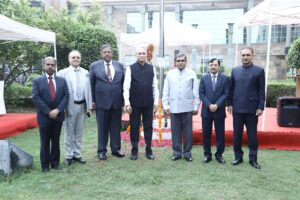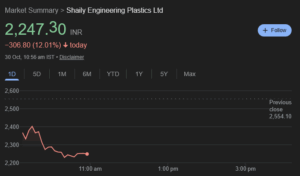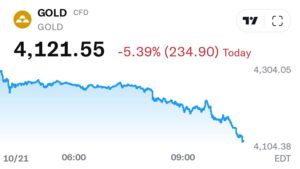
A recent tweet by filmmaker Ram Gopal Varma (RGV) on October 20, 2025, comparing the Hindu festival of Diwali to the ongoing conflict in Gaza has ignited a firestorm of criticism across social media platforms. The tweet, which quickly amassed millions of views, read: “In INDIA only one day is DIWALI and in GAZA, every day is DIWALI🔥🔥🔥”.
The statement drew immediate and widespread condemnation from users who viewed it as deeply insensitive, morally depraved, and a gross misrepresentation of the sacred festival.
The Heart of the Controversy:
Misappropriating a Festival of Light
The most significant point of contention raised by users was the stark and unacceptable parallel RGV drew between a celebration of light, positivity, and prosperity—Diwali—and the daily realities of war, violence, and suffering in Gaza.
User @pranavmahajan succinctly captured this sentiment, stating, “Comparing a sacred festival like Deepawali with the acts in Gaza is totally wrong and unacceptable.” Echoing this, user @ashu05245 (Tarun) emphasized the core meaning of the festival, asserting, “Diwali is about light over darkness — not about celebrating someone else’s pain.”
Another user, @0__Shunya__0, stressed that the comparison was a “Wrong parallel drawn here,” clarifying that “Dipawali is a festival of light and positivity. It is celebrated to bring joy to people’s lives across the world. Never compare it with any war, conflict, suffering of people.”
These responses highlight the collective anger over the perceived trivialization of human suffering and the distortion of a religious and cultural celebration.
Moral Outrage and Societal Critique
Beyond the insult to the festival, some users used the tweet as a touchstone for a broader critique of perceived moral decline. Tanpreet Sehgal (@TanpreetSingh) expressed profound dismay, calling the act “Rotten to the core,” and wondering aloud how “a society take such a dark turn towards such intense moral depravity and normalization of hatred just within 10 yrs.” This perspective frames RGV’s comment not just as a one-off error but as a symptom of a worrying societal trend.
Personal and Professional Backlash
The criticism also took aim at RGV’s professional standing and his apparent need for attention. User @saadd_318 mocked the filmmaker, suggesting he was “tryna trend after flopping harder than his last 10 movies and He is talking about explosions after his career exploded in 2010.” This type of response suggests that the highly controversial nature of the tweet may have been an intentional move to generate publicity.
The overriding consensus was that the post was completely “Extremely Unecessary,” as noted by @RohitMu91645791, and would ultimately “only bring bad name to our festival.”
As of now, the tweet remains posted, continuing to draw attention and debate, underscoring the powerful and immediate public backlash that follows inflammatory comments on sensitive global and cultural issues.
What do you think is the responsibility of public figures when commenting on international conflicts and cultural festivals





